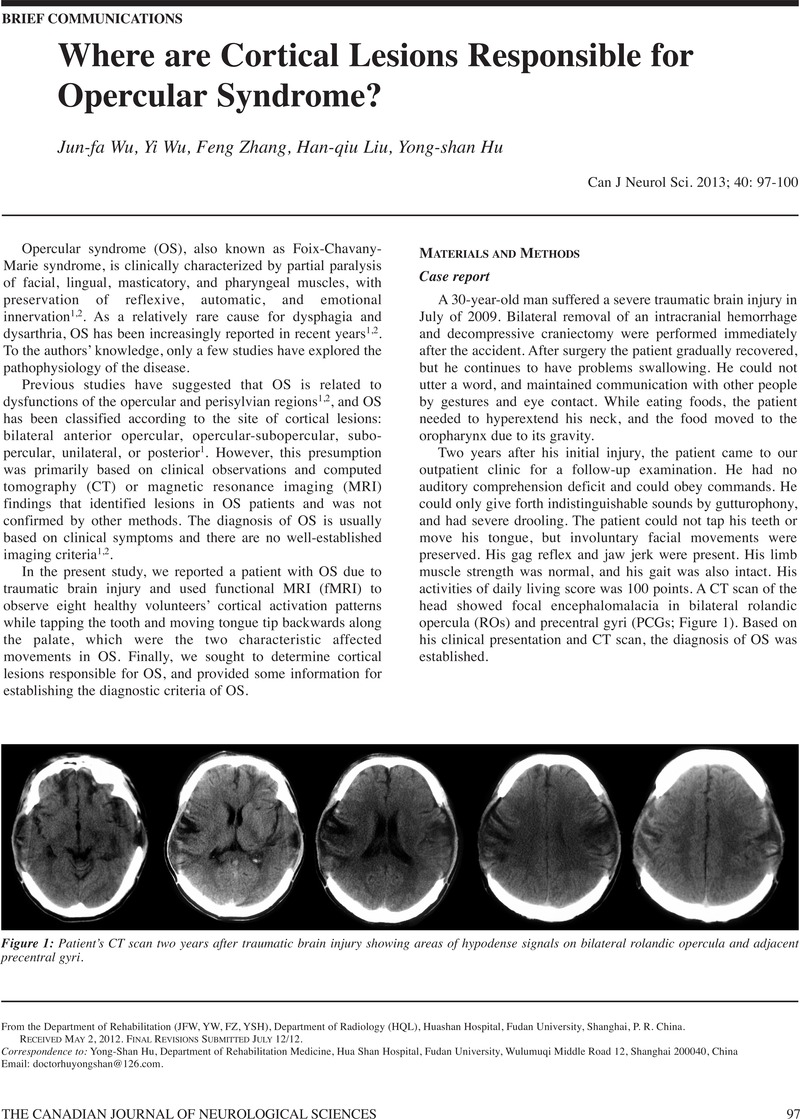Crossref Citations
This article has been cited by the following publications. This list is generated based on data provided by Crossref.
Rivas, Katherine
Pan, Jie
Chen, Angela
Gutiérrez, Bailey
and
Julayanont, Parunyou
2021.
Foix-Chavany-Marie syndrome due to unilateral anterior opercular infarction with leukoaraiosis.
Baylor University Medical Center Proceedings,
Vol. 34,
Issue. 3,
p.
389.



